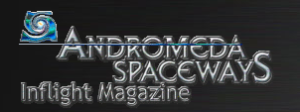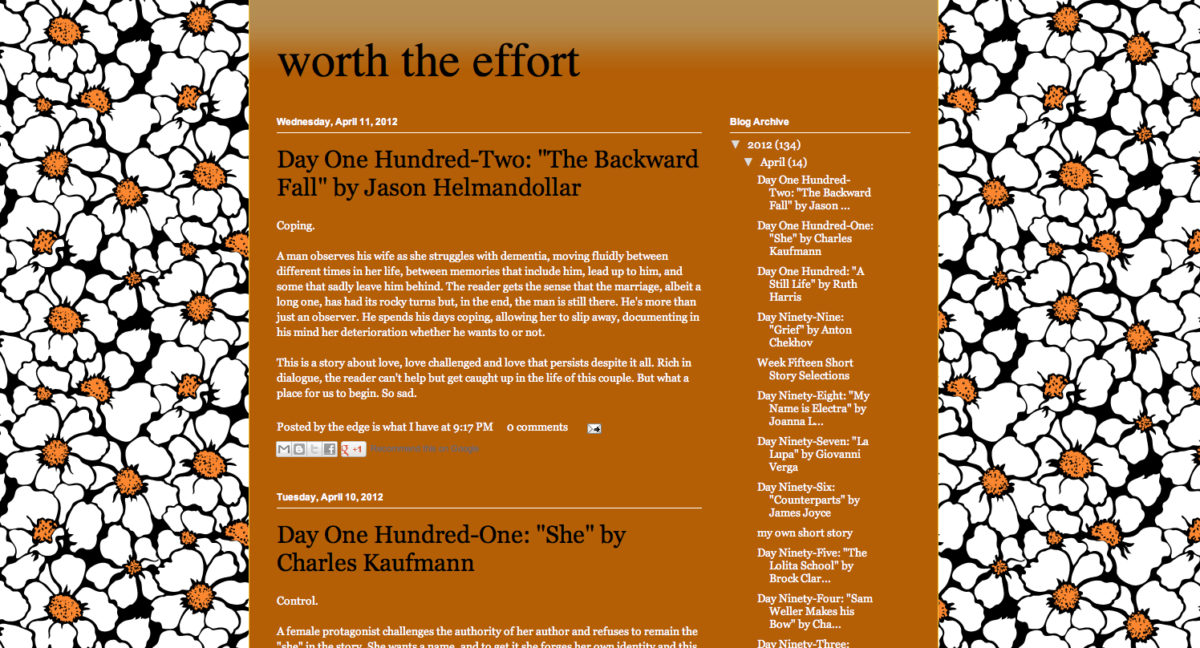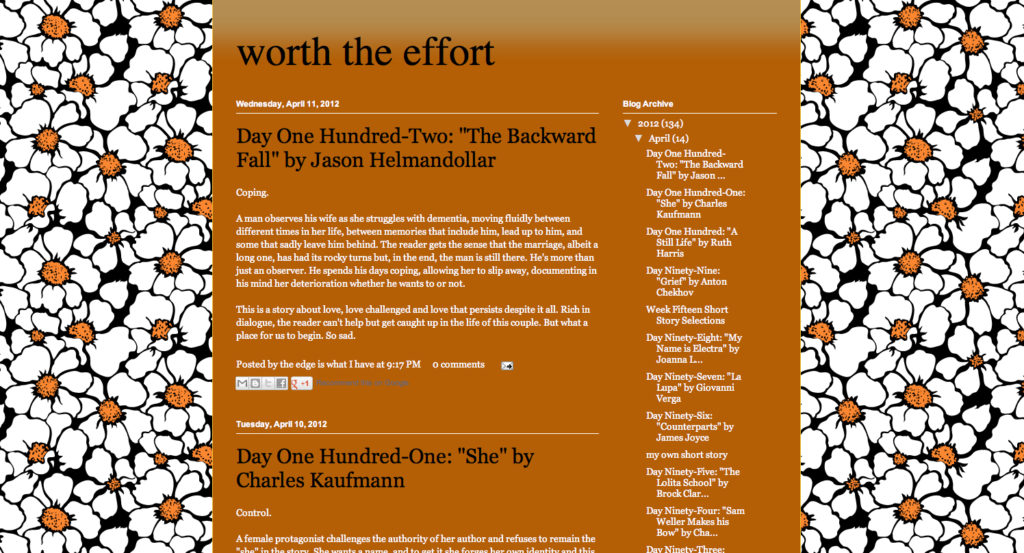 I found this story in Andromeda Spaceways Inflight Magazine and I loved it.
I found this story in Andromeda Spaceways Inflight Magazine and I loved it.
It’s a sci-fi story set on Earth, on the RMS Titanic, to be precise. How can that be a sci-fi/fantasy story? Well, you’ll have to read it to find out.
The story takes place exclusively around a card table on the luxury liner. Four men are playing Bridge and talking in a wide-ranging conversation as people do: they talk about where they’re from, what they’re thinking about, each one interjecting something that a man of his time, class and geographical identity might know something about.
The whole piece is beautifully crafted. Each character has a distinct voice and a careful use of dialogue tags keeps us straight in case there was any confusion.
Since we were talking about openings in last week’s Writing Prompt, I thought I’d quote from the opening of this story. It is very clever and repays the reader for a second reading. It promises one thing, delivers something different and then comes back and plays with us again, so we’re not quite sure where the writer is going.
“Is dangerous, this ice,” said the Russian.
The great frozen mass approached slowly, the steward struggling to push the cart across the threshold of the card room.
“I agree,” said the New Yorker. He shuffled a deck of cards, rather listlessly. “Looks like it’s about to give our steward here a hernia.”
“I only wanted enough to put in my brandy,” said the Texan. “Why’d he bring the whole block?”
“White Star line is very prideful of her service,” said the steward.
“They don’t do anything small on the Titanic,” the New Yorker said. “Not in first class, anyway.”
And then the story moves away from the ice and the Titanic and follows the mens’ conversation as they range all over history, philosophy, linguistics and fantasy. It’s a great discussion in itself, which keeps you reading. (I like stories where I feel like I’m learning something, or remembering something I once knew. I like stories that make me feel clever, don’t you?)
As the discussion continues, it subtly, subtly becomes clear that they are closing in on one topic, that is going to be the point of this story. The author uses repetition and comic relief in a really skillful way, to set up the eventual conclusion.
At the end of this story I sat back and said “Ha!” out loud, in an empty room.
I love it when that happens.
Durak
by Anatoly Belilovsky
published in Andromeda Spaceways Inflight Magazine No.54

![[Tuesday Reading Room] Durak By Anatoly Belilovsky](https://storyaday.org/wp-content/uploads/2012/12/Screen-Shot-2012-12-20-at-9.59.59-AM.png)



